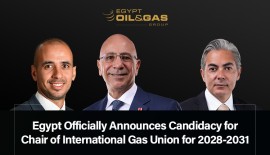A global energy crisis is looming as European gas prices hit record highs amid tight supply and increasing demand by economies recovering from the COVID-19 pandemic.
The frenzy to secure natural gas is pushing up the prices of coal and oil, casting a shadow over efforts to mitigate climate change and even threatening to ignite geopolitical tensions.
The approaching crisis is causing central banks and investors to worry as the World Bank is warning that rising energy prices are contributing to inflation that has already been a major concern for economies that have been trying to recover from the effects of Covid-19.
Many citizens around the world must be ready for soaring energy bills. The skyrocketing energy prices are escalating costs of fertilizers and transportation of goods around the world, which will contribute to an emerging food crisis. The United Nations, meanwhile, is warning that the energy rally could also prompt more crops to be diverted to making biofuels.
According to World Bank, energy prices are expected to inch up in 2022 after surging more than 80% in 2021, fueling significant near-term risks to global inflation in many developing countries and leaving some of the world leaders struggling to secure their energy needs at any cost.
The crisis has also left experts wondering about the real causes of the energy crunch, the ways to fix it and its consequences on the future energy dynamics and efforts to reduce emissions.
Geopolitical Tensions
For many European officials, the energy crisis is a direct result of a geopolitical move by Russia to put pressure on the EU to approve the Nord Stream 2 Baltic Sea pipeline.
The European Commission was even looking into complaints by some EU countries that Russia is using its position as a major supplier to drive the soaring price of gas in Europe.
Although Russian supplier Gazprom has been fulfilling its sales obligations under long-term contracts, the fact that it was not adding more to match the growing demand has frustrated gas-thirsty Europeans.
Russian President Vladimir Putin refuted the Europeans accusations about weaponizing gas supplies, blamed soaring European gas prices on the past decisions by EU officials who focused on the spot gas market and opposed long-term supply contracts preferred by Russia.
Putin stressed that Russia could quickly boost natural gas supplies to the EU once German regulators allow a new pipeline under the Baltic Sea to start operation. One of the two links of the new pipeline already has been filled with gas as part of preparations for its launch to supply17.5 billion cubic meters once it is approved.
Still, many European officials see that importing 90% of the block’s gas needs – much of it from rival Russia – makes it vulnerable.
However, the EU leaders struggled to agree on a common response to soaring energy prices, which have exposed rifts over the bloc’s climate change goals and division on whether the price crunch requires an overhaul of EU energy market rules.
The European Commission has published a “toolbox” outlining the national measures governments can take and said Brussels would look into longer-term options to address price shocks, which seem to be more difficult to garner the consensus of the block members.
The soaring price of natural gas and shortfall in its supply were also among the key causes of an energy crisis in China. The crisis is taking a toll on the manufacturing sector in China, threatening the economy’s growth for the rest of the year, which will have even greater consequences for the global economy than Europe’s energy squeeze.
With Beijing striving to secure supplies, global energy markets are likely to see a bidding war for supplies of coal and natural gas, boosting prices worldwide.
A New Rebound for Fossil Fuels
Away from the geopolitics conspiracy theories, there are experts who refer to a real shortage in production that requires more investments. They believe that the crisis was a result of a drop in fossil fuels investments while renewable energy hasn’t proven sufficiently scalable to provide the growing needs for energy. Some analysts referred to the crisis as a backlash of the continuous attempts to demonize fossil fuels investments.
Saudi Arabia’s Minister of Energy Prince Abdulaziz bin Salman sees that the spike in energy prices is a result of limited investment in hydrocarbons and infrastructure, low inventories, the lifting of pandemic lockdowns and COVID-19 vaccine uptake rates.
According to the International Energy Agency (IEA), the global energy crunch is expected to boost oil demand by 500,000 barrels per day (bpd).
The agency has made upward revisions to its demand forecasts for this year by 170,000 bpd, or a total addition of 5.5 million for the year, and by 210,000 bpd in 2022, or a total addition of 3.3 million.
An upsurge in demand in the past quarter led to the biggest draw on oil products stocks in eight years, it said.
Prince Abdulaziz said the world must pay attention to energy supply security, which should not be compromised in the fight against climate change.
Speaking to CERA Week India Energy Forum, OPEC Secretary General Mohammad Barkindo, referred to surging energy prices and said “not tackling energy affordability, energy security and reducing emissions at once could lead to unintended consequences.”
“We need a diversified energy mix, cleaner and more efficient technological solutions, and a stable, inclusive, just and equitable energy transition,” he said while insisting that “the oil and gas industry can and must play a key role.”
While Qatar, the world’s largest seller of liquefied natural gas (LNG), told consumers it was powerless to cool energy prices, US President Joe Biden blamed the current high oil prices on OPEC withholding supply.
However, Biden dismissed the idea that he might try to persuade the producer group and namely Saudi Arabia to increase production.
“I must tell you, I don’t have a near-term answer,” said Biden. The US President is siding with the advice of the International Energy Agency to boost clean energy spending considerably, rather than increase production in fossil fuels to address this mismatch between energy supply and demand on a long-term.
Despite calls for OPEC and its allies to ramp up production, the group has only gradually increased output sidelined in early 2020. They seem content to let oil prices remain elevated.
Therefore many experts see the credibility of the Bank of America’s warning that a cold winter could lift Brent crude to $100 a barrel.
Climate Ambitions Under Threat
The International Energy Agency has warned that reigniting demand for oil is posing a threat to the world’s climate ambitions
The energy watchdog said the shortage in gas and coal across the biggest economies could trigger a faster-than-expected rebound in the oil market and drive demand to above pre-pandemic levels as soon as next year.
The IEA’s executive director, Fatih Birol, has warned that a sharp rise in oil and coal demand could spell the second largest increase in CO2 emissions in history because governments had not seized the opportunity for a “green recovery” from the pandemic.
In its annual World Energy Outlook, redesigned this year as a “guidebook” for world leaders attending the summit in Glasgow, the IEA predicted that carbon emissions would decrease by just 40% by the middle of the century if countries stick to their climate pledges.
Many observers were concerned that the squeeze in energy markets and the resurgence of coal may cast a shadow over efforts to curb emissions when 200 countries meet at the climate change summit, known as COP26, in Glasgow, Scotland.
COP26 organizers have set a target for the summit to “consign coal to history” in order to limit global warming to 1.5 degrees Celsius compared to pre-industrial levels.
However, pressures imposed by the prices spike may stall the momentum toward such actions.








